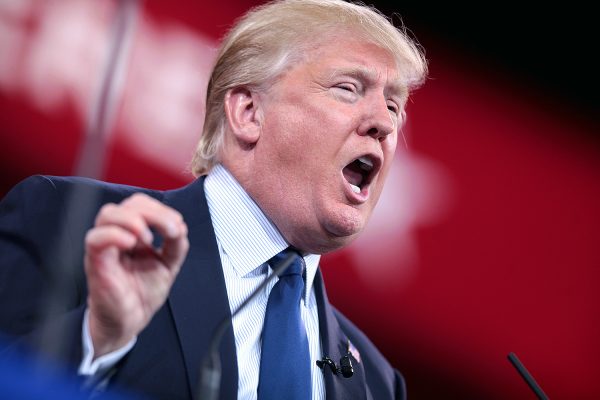
American president Donald Trump and his supporters have learned one lesson of the Iraq War: To quash legitimate concerns about an ill-advised military operation, call the patriotism of your critics into question.
It sometimes works — but only briefly, and it hurts you more than helps in the end.
With me or with the terrorists
Echoing George W. Bush’s warning to the world — “Either you are with us or you are with the terrorists” — Trump told supporters that “radical Democrats … are busy criticizing me for eliminating a deadly terrorist.”
His former ambassador to the United Nations, Nikki Haley, told Fox News on Tuesday that Democrats were “mourning” the death of Iranian general Qasem Soleimani, who is held responsible for killing thousands — including Americans — in Iraq and Syria.
Congressman Mark Meadows of North Carolina tweeted Democrats are “falling all over themselves equivocating about a terrorist.” Georgia’s Doug Collins said Democrats are “in love with terrorists.”
Most Democrats have actually gone out of their way to say they are glad Soleimani is dead. They do question the wisdom and timing of killing Iran’s most powerful military leader. Is there a strategy? Did Trump anticipate blowback? If so, what preparations did he order for it? Did his impeachment and reelection factor into the decisionmaking process?
Those are fair questions to ask, especially of a man who doesn’t appear to think long-term and who doesn’t distinguish between politics and policy.
Which makes the right’s insinuations all the more galling. The reason House Democrats impeached Trump is that he tried to blackmail Ukraine into launching an investigation of the son of his Democratic rival, Joe Biden, by holding up congressionally mandated military aid. Trump called Democrats traitors for trying to remove him. An email from his reelection campaign asked supporters, “Are you a Democrat or an American?” Trump has criticized Democratic House speaker Nancy Pelosi against the backdrop of military graves in Normandy. He has criticized Democrats in countless news conferences with foreign leaders.
When Barack Obama was in power, Republicans in Congress went so far as to write to Iran that the Democrat’s diplomacy might not survive his presidency. It is hard to think of a more blatant attempt to undermine a president’s foreign policy.
There is something to be said for presenting a united front to the rest of the world. Republicans have no credibility to make that argument.
Spain
America’s conservatives are not the only ones who confuse dissent for treason.
In Spain, right-wing parties call Prime Minister Pedro Sánchez a traitor for relying on the support of Basque and Catalan separatist parties for his majority and being willing to negotiate a new division of powers between Barcelona and Madrid.
Far from betraying the Spanish nation, this is an attempt to keep the Catalans in. Without change, around half would rather leave Spain.
If anything, it was the last conservative government’s stubborn refusal to even hear out Catalan demands, much less give the region more autonomy, that fueled support for the independence movement.
The left
Nor has the right a monopoly on vilifying its opponents.
At the time of the Iraq War, most left-wing skeptics raised reasonable — and, it turned out, correct — objections. Others called George W. Bush a fascist.
In Britain, the Labour Party has accused the ruling Conservatives of not caring about poor children, when they merely changed the government’s definition of poverty, and “terrorizing disabled people,” when they reformed disability benefits.
Jeremy Corbyn, the outgoing leader, had a knack for describing policy disagreements in moralistic terms. If the Conservatives cut taxes for the rich, it was because they didn’t care about the poor. If they cut taxes for everyone, it was only to give themselves political cover to cut taxes for the rich. If they privatized state-owned companies, it was because they wanted to “sell off national assets,” not because they believed private businesses might provide better services than a government monopoly. If they required workers to opt in to rather than opt out of a trade union, it was an “attack on the unions,” not a defense of the rights of the individual.
Words matter
I’ve argued before that how we talk about our opponents matters.
When the far left called Bush a fascist, it made it easier for Republicans to dismiss opposition to the war altogether.
When the Spanish right calls any concession to the Catalan independence movement treasonous, it give the Catalans no choice but to deal with the left and the conservatives lose credibility with centrist voters. The result is the most left-wing government in Spain since before the Civil War.
When Labour calls every tax and spending cut evil, they not only fail to win back centrist voters; they lose the support of even lifelong Labour voters, who don’t take the party seriously anymore. Corbyn presided over the worst Labour defeat since 1935. Assuming Boris Johnson serves out his full five-year term, the Conservatives will have ruled the United Kingdom uninterrupted for fourteen years.
When Republican leaders in the United States call Democrats traitors, many of their voters believe them — but few Democrats or independents are convinced. The gap between the two parties widens and governing becomes even harder. If the other side is composed of traitors, doing a deal with them would not be a difficult compromise but itself a betrayal of the nation. So mutual resentment and suspicion increase, undermining the very united front Republicans demand.
